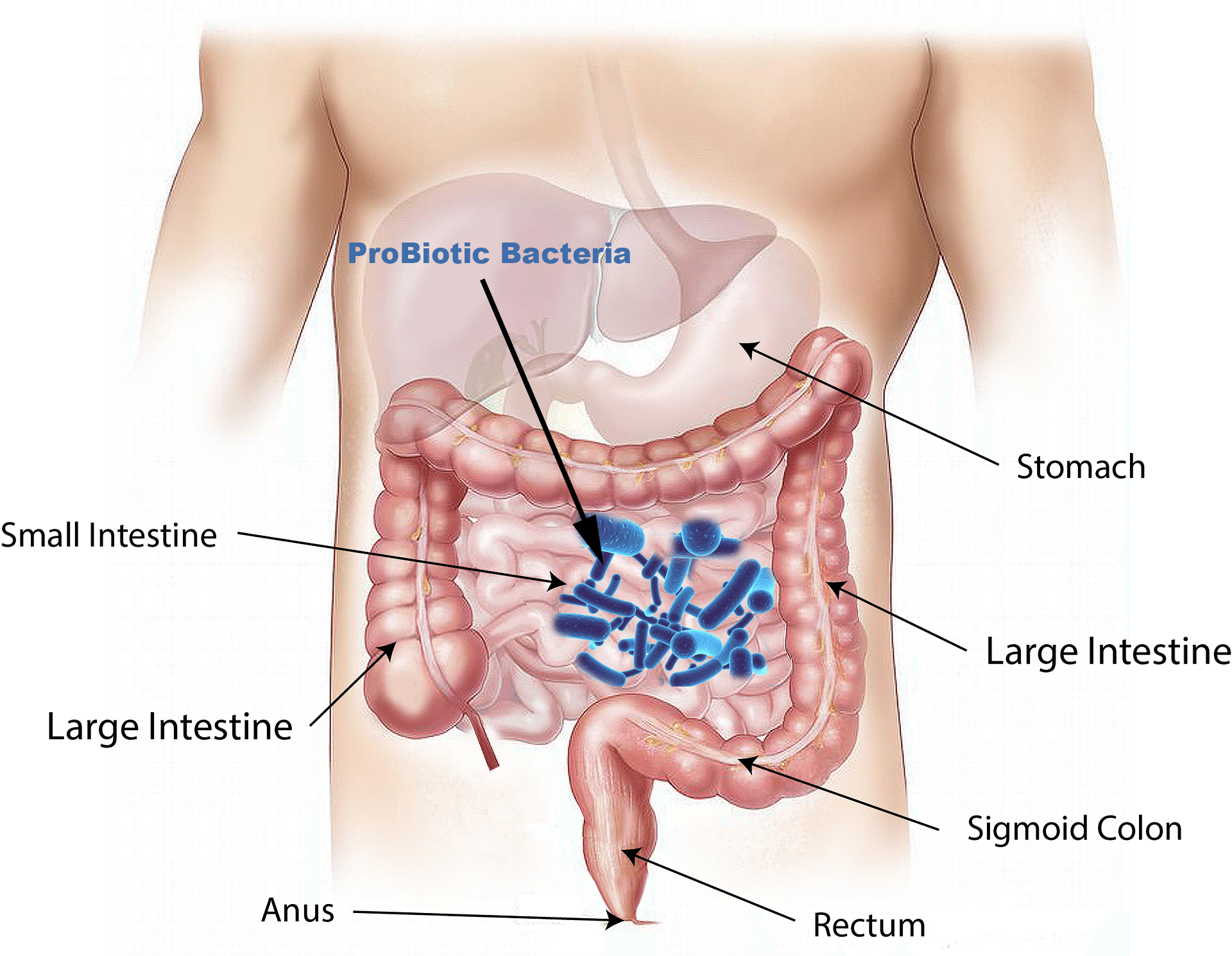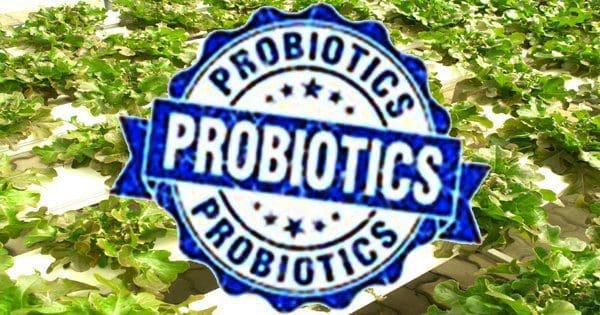Created by the Academy of Nutrition and Dietetics, National Nutrition Month® is celebrated annually every March to help everyone make more informed food choices and develop healthier eating habits for improved well-being.
With many recent studies focusing on the benefits of a diet that includes probiotics, also known as “good” bacteria, and prebiotics, which act as food for probiotics and promotes their growth, here we round up some of ways that boosting levels of good bacteria could improve various conditions and overall health.
Reduce social anxiety
A 2015 study of 700 students participants found that eating fermented foods, a good source of probiotics, is associated with reduced symptoms of social anxiety.
The study, published in Psychiatry Research, also found that the link between fermented foods and reduced social anxiety was strongest among those who already rated high in neuroticism.
The findings came after an earlier study published in The Lancet Psychiatry stated that an increasing amount of evidence suggests an important relationship between the quality of diet and mental health.
Improve sleep, protect against stress
A study published just last month found that prebiotics, can help improve sleep and protect against the negative effects of stress.
The team of researchers fed 3-week-old male rats a diet of either standard chow or chow that included prebiotics, and found that those on the prebiotic diet spent more time in non-rapid-eye-movement (NREM) sleep, which is restful and restorative, than those on the non-prebiotic diet.
Rats who were on the prebiotic diet also spent more time in rapid-eye-movement (REM) sleep after being exposed to a stressor, with REM sleep is believed to be critical for promoting recovery from stress.
Previous research has also shown that stress can reduce healthy diversity of gut bacteria, but the rats on the prebiotic diet maintained a healthy and diverse gut microbiota even after exposure to stress.

Reduce obesity
A 2015 study confirmed a link between balanced intestinal flora and weight loss.
The study, published in the journal Obesity, showed that while following a four-week high-fat diet the men who drank a probiotic milkshake containing VSL3, a probiotic with multiple strains of bacteria including Lactobacillus acidophilus and Bifidobacterium longum, put on less weight than others following the diet who drank a placebo milkshake.
The researchers think that probiotics could have changed gut bacteria in a way that resulted in less body fat accumulation, and that the probiotics could have reduced fat absorption.
Reduce risk of allergies
Prebiotics have been shown in various studies to help reduce the risk of allergies.
A French study using mice found that those who received prebiotics had a lower risk of developing a wheat allergy thanks to the prebiotics improving the immune system’s tolerance to allergens, while a US study by the University of Chicago also found that in infants who had trouble tolerating cow’s milk, a new probiotic not only got rid of the allergy, but also changed the composition of their gut bacteria significantly.
A separate study also from the University of Chicago, found that supplementing rodents with probiotics containing the bacterium Clostridia later in life could reverse a peanut allergy.
Sourced From: How Pre- and Probiotics Can Boost Your Health
Copy Rights: Newsmax Health – Diet and Fitness

Post Disclaimer
Professional Scope of Practice *
The information herein on "How Pre - Probiotics Can Boost Your Health" is not intended to replace a one-on-one relationship with a qualified health care professional or licensed physician and is not medical advice. We encourage you to make healthcare decisions based on your research and partnership with a qualified healthcare professional.
Blog Information & Scope Discussions
Welcome to El Paso's Premier Wellness, Personal Injury Care Clinic & Wellness Blog, where Dr. Alex Jimenez, DC, FNP-C, a Multi-State board-certified Family Practice Nurse Practitioner (FNP-BC) and Chiropractor (DC), presents insights on how our multidisciplinary team is dedicated to holistic healing and personalized care. Our practice aligns with evidence-based treatment protocols inspired by integrative medicine principles, similar to those on this site and our family practice-based chiromed.com site, and focuses on restoring health naturally for patients of all ages.
Our areas of multidisciplinary practice include Wellness & Nutrition, Chronic Pain, Personal Injury, Auto Accident Care, Work Injuries, Back Injury, Low Back Pain, Neck Pain, Migraine Headaches, Sports Injuries, Severe Sciatica, Scoliosis, Complex Herniated Discs, Fibromyalgia, Chronic Pain, Complex Injuries, Stress Management, Functional Medicine Treatments, and in-scope care protocols.
Our information scope is multidisciplinary, focusing on musculoskeletal and physical medicine, wellness, contributing etiological viscerosomatic disturbances within clinical presentations, associated somato-visceral reflex clinical dynamics, subluxation complexes, sensitive health issues, and functional medicine articles, topics, and discussions.
We provide and present clinical collaboration with specialists from various disciplines. Each specialist is governed by their professional scope of practice and their jurisdiction of licensure. We use functional health & wellness protocols to treat and support care for musculoskeletal injuries or disorders.
Our videos, posts, topics, and insights address clinical matters and issues that are directly or indirectly related to our clinical scope of practice.
Our office has made a reasonable effort to provide supportive citations and has identified relevant research studies that support our posts. We provide copies of supporting research studies upon request to regulatory boards and the public.
We understand that we cover matters that require an additional explanation of how they may assist in a particular care plan or treatment protocol; therefore, to discuss the subject matter above further, please feel free to ask Dr. Alex Jimenez, DC, APRN, FNP-BC, or contact us at 915-850-0900.
We are here to help you and your family.
Blessings
Dr. Alex Jimenez DC, MSACP, APRN, FNP-BC*, CCST, IFMCP, CFMP, ATN
email: [email protected]
Multidisciplinary Licensing & Board Certifications:
Licensed as a Doctor of Chiropractic (DC) in Texas & New Mexico*
Texas DC License #: TX5807, Verified: TX5807
New Mexico DC License #: NM-DC2182, Verified: NM-DC2182
Multi-State Advanced Practice Registered Nurse (APRN*) in Texas & Multi-States
Multi-state Compact APRN License by Endorsement (42 States)
Texas APRN License #: 1191402, Verified: 1191402 *
Florida APRN License #: 11043890, Verified: APRN11043890 *
Colorado License #: C-APN.0105610-C-NP, Verified: C-APN.0105610-C-NP
New York License #: N25929, Verified N25929
License Verification Link: Nursys License Verifier
* Prescriptive Authority Authorized
ANCC FNP-BC: Board Certified Nurse Practitioner*
Compact Status: Multi-State License: Authorized to Practice in 40 States*
Graduate with Honors: ICHS: MSN-FNP (Family Nurse Practitioner Program)
Degree Granted. Master's in Family Practice MSN Diploma (Cum Laude)
Dr. Alex Jimenez, DC, APRN, FNP-BC*, CFMP, IFMCP, ATN, CCST
My Digital Business Card
Licenses and Board Certifications:
DC: Doctor of Chiropractic
APRNP: Advanced Practice Registered Nurse
FNP-BC: Family Practice Specialization (Multi-State Board Certified)
RN: Registered Nurse (Multi-State Compact License)
CFMP: Certified Functional Medicine Provider
MSN-FNP: Master of Science in Family Practice Medicine
MSACP: Master of Science in Advanced Clinical Practice
IFMCP: Institute of Functional Medicine
CCST: Certified Chiropractic Spinal Trauma
ATN: Advanced Translational Neutrogenomics
Memberships & Associations:
TCA: Texas Chiropractic Association: Member ID: 104311
AANP: American Association of Nurse Practitioners: Member ID: 2198960
ANA: American Nurse Association: Member ID: 06458222 (District TX01)
TNA: Texas Nurse Association: Member ID: 06458222
NPI: 1205907805
| Primary Taxonomy | Selected Taxonomy | State | License Number |
|---|---|---|---|
| No | 111N00000X - Chiropractor | NM | DC2182 |
| Yes | 111N00000X - Chiropractor | TX | DC5807 |
| Yes | 363LF0000X - Nurse Practitioner - Family | TX | 1191402 |
| Yes | 363LF0000X - Nurse Practitioner - Family | FL | 11043890 |
| Yes | 363LF0000X - Nurse Practitioner - Family | CO | C-APN.0105610-C-NP |
| Yes | 363LF0000X - Nurse Practitioner - Family | NY | N25929 |
Dr. Alex Jimenez, DC, APRN, FNP-BC*, CFMP, IFMCP, ATN, CCST
My Digital Business Card





 Again, We Welcome You.
Again, We Welcome You.
Comments are closed.